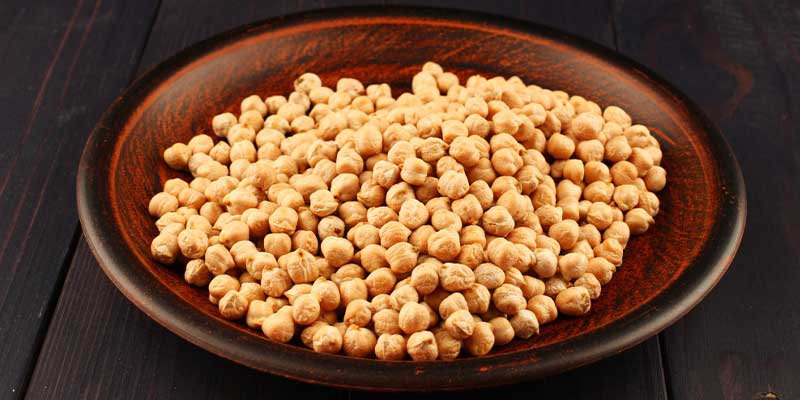Chana Protein Per 100g
When it comes to plant-based proteins, few foods are as versatile and nutritionally rich as chana, also known as chickpeas or Bengal gram.
A staple in many cuisines around the world, chana is not only delicious but also packed with essential nutrients, making it an excellent choice for those looking to increase their protein intake.
| Quick Summary |
| 100 grams of chana (chickpeas) contain about 19 grams of protein, making them a substantial plant-based protein source. |
In this blog post, we'll explore the protein content in chana, its health benefits, and how you can incorporate this powerhouse legume into your diet.
Understanding the Protein Content in Chana
Chana is widely recognized for its high protein content, which makes it a popular choice among vegetarians, vegans, and health-conscious individuals.
On average, 100 grams of raw chana contains approximately 19 grams of protein. This amount is quite substantial, especially when compared to other plant-based protein sources.
For context:
- Lentils: About 9 grams of protein per 100 grams.
- Quinoa: Approximately 4.4 grams of protein per 100 grams.
- Brown Rice: Around 2.6 grams of protein per 100 grams.
This comparison highlights chana as one of the best plant-based protein sources available, making it an essential part of a balanced diet, particularly for those who follow a vegetarian or vegan lifestyle.
4 Health Benefits of Chana
Beyond its impressive protein content, chana offers a range of other health benefits:
Rich in Fiber: Chana is high in dietary fiber, which promotes healthy digestion, helps regulate blood sugar levels, and supports heart health. A diet high in fiber can also contribute to weight loss by promoting a feeling of fullness.
Low Glycemic Index: Chana has a low glycemic index (GI), meaning it causes a slower and steadier rise in blood sugar levels. This makes it an ideal food choice for people with diabetes or those looking to manage their blood sugar levels.
Packed with Vitamins and Minerals: Chana is an excellent source of essential vitamins and minerals, including iron, magnesium, potassium, and B vitamins. These nutrients are crucial for maintaining energy levels, supporting metabolic functions, and promoting overall health.
Antioxidant Properties: Chana contains antioxidants like flavonoids, which help protect the body from oxidative stress and inflammation, reducing the risk of chronic diseases.
How to Incorporate Chana into Your Diet
Chana's versatility makes it easy to incorporate into a variety of dishes. Here are some delicious and nutritious ways to enjoy chana:
- Chana Salad: Mix boiled chana with fresh vegetables, herbs, and a light dressing for a protein-packed salad that's perfect for lunch or dinner.
- Hummus: Blend boiled chana with tahini, olive oil, lemon juice, and garlic to make a creamy, flavorful hummus that's perfect as a dip or spread.
- Chana Curry: Prepare a spiced chana curry using tomatoes, onions, and a mix of spices for a hearty and satisfying meal.
- Roasted Chana: Roast chana with a sprinkle of salt and spices for a crunchy, protein-rich snack.
- Chana Flour (Besan): Use chana flour to make pancakes, breads, or even as a thickener in soups and stews.
Conclusion
Chana is a nutritional powerhouse that offers a significant amount of protein per 100 grams, along with a host of other health benefits.
Whether you're looking to build muscle, manage your weight, or simply improve your overall diet, chana is an excellent food to include in your meal plan. Its versatility in cooking, combined with its rich nutrient profile, makes it a must-have in any kitchen.
So the next time you're planning your meals, consider adding chana—not just for its protein content, but for the wide range of benefits it offers to your health and well-being.


